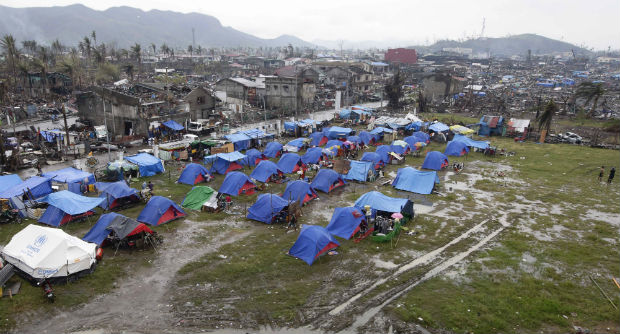TWO YEARS after Supertyphoon “Yolanda” (international name: Haiyan) ravaged Eastern Visayas, the Catholic Church’s Caritas Internationalis said it had so far served 1.8 million people greatly affected by the calamity, providing them with disaster-resilient shelters, water and sanitation facilities and livelihood, among many others.
The Vatican-based Caritas Internationalis groups together more than 130 Catholic relief, development and social service organizations in more than 200 countries.
Fr. Edu Gariguez, executive secretary of Caritas Philippines, said the organization’s overall typhoon response included the coordinated efforts of the Philippine Catholic Church and the various Caritas Internationalis member organizations from other countries.
The Catholic Church has shelled out about P3.2 billion in the last two years to help the worst-hit areas get back on their feet, said Gariguez, also of the Catholic Bishops’ Conference of the Philippines National Secretariat for Social Action.
“These interventions cover relief up to the recovery phase, which include the provision of disaster-resilient shelters, water and sanitation facilities, livelihood assistance and other infrastructures such as schools and evacuation centers,” he said.
The other services included hygiene promotion, community-managed disaster risk reduction activities, community organizing and ecosystem recovery.
The total beneficiaries reached so far was equivalent to 20 percent of the total population affected by Yolanda in nine worst-hit provinces—in Leyte, Eastern Samar, Western Samar, Palawan, Aklan, Capiz, Antique, Cebu and Iloilo, said Gariguez.
“Overall, the amount spent of the Caritas confederation for Typhoon Yolanda in the last two years has already reached P3.2 billion,” he noted.
“And we make sure that transparent and honest spending is being practiced in all levels through regular financial monitoring, evaluation and audition from international auditing companies,” he said.
